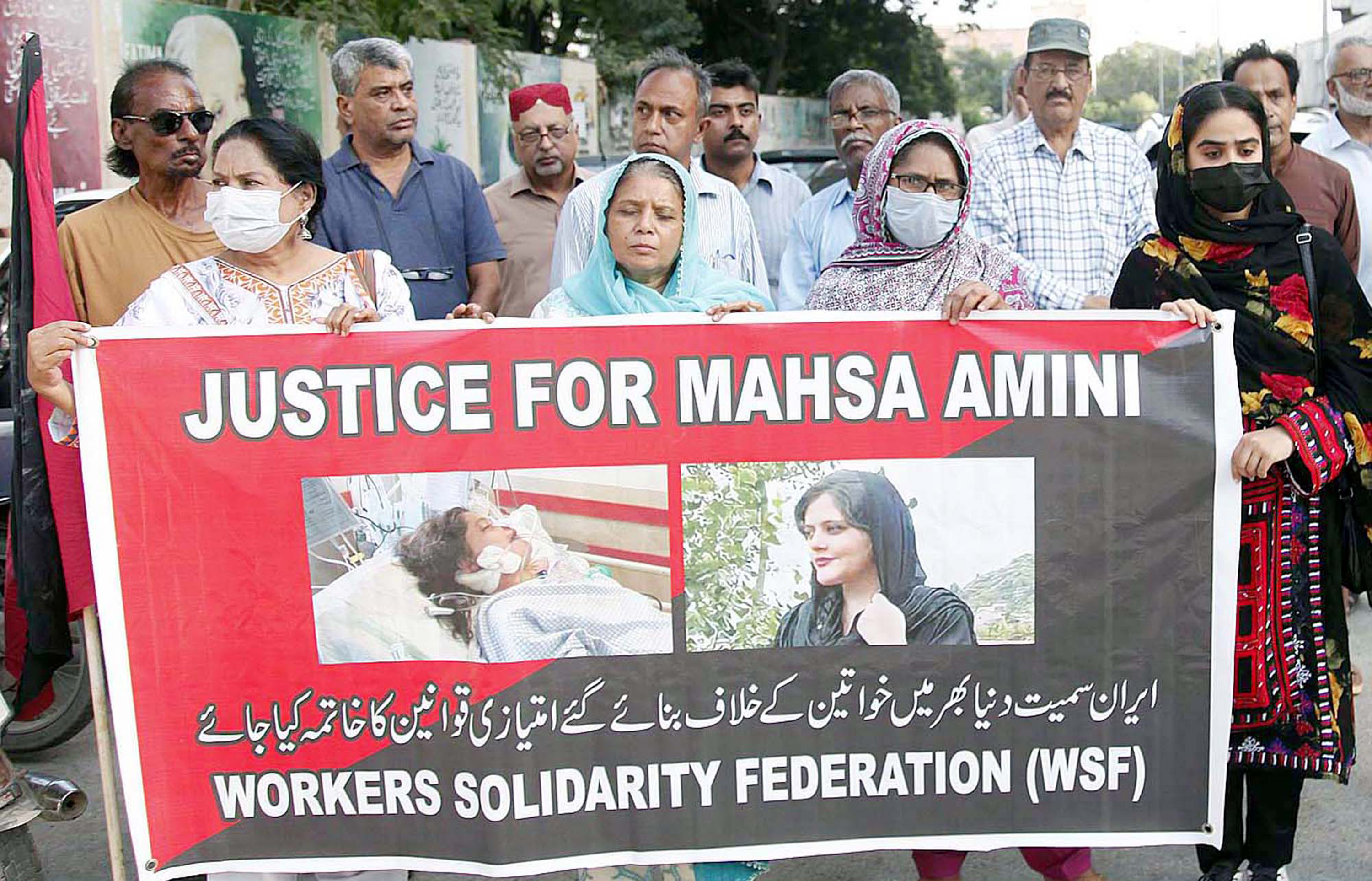Blog
Keeping women down

Germany has had a female head of state for a number of years – Chancellor Angela Merkel. The country’s biggest party also has a female head, Annegret Kramp-Karrenbauer, who is also the new minister of defence. And the former German minister of defence, Ursula von der Leyen, will now lead the European Commission. All these positions are at the core of power and come with a lot of control over crucial political decisions. It looks like women have finally got the power in Germany and possibly in Europe as well.
But this is an illusion. Media outlets may write about the “matriarchy” now reigning in Germany, but the reality is different – in Germany, in Europe and in the world. There are countries with high numbers of female representatives in parliament. While this is an important step forward, it does not automatically mean that all women in that state are well off.
In Germany, of all members of parliament, 30.7 % are female. In Rwanda, it is 61.3 %. This is a great achievement, but it still does not tell a lot about the position of women in society in general. In Bolivia, for instance, in 2018 the share of female representatives in the national parliament was 53.1 %. At the same time, Bolivia is one of the countries with the most incidents of gender-based violence. Domestic violence is rampant in Bolivia.
So how does this tie together? Mainly, because when women in patriarchal societies start to assert themselves, a backlash usually follows. While women who conform to their supposedly “natural” role of wife and mother, i.e. serving men, are being spared, women who challenge this order are subdued by violence. This can be domestic violence, rape, or – in the worst case – murder. The name for this is “femicide”.
The UN-supported civil-society organisation Femicide Watch defines femicide as “gender-related killing of women and girls”. Basically, it means that a woman is killed for being a woman. More often than not, the murderer is a male family member. This happens everywhere.
Last year, 123 women in Germany were killed by their partner or ex-partner. These murders are often belittled as “family drama”. In German jurisdiction, femicide does not exist.
Other countries have progressed in this matter. Mexico is one of the countries with a high incidence of femicides. In the northern Mexican town of Ciudad Juárez, in the early 1990s there was an avalanche of murders. Victims were blamed for going out late or wearing “provocative” skirts – as if this was a rational reason for killing a woman.
Feminist groups protested for years, arguing that the common motives for all these murders were structural discrimination and hate against women. Finally, femicide was included in Mexican jurisdiction; since 2012, it constitutes a criminal offence in its own right. Still, nine women are killed each day in Mexico. But now the police must follow strict rules in the investigation and cannot play it down as an argument between a couple gone too far. However, the conviction rate is very low.
Violence is the best way to keep women down, locked up in the house, invisible in public and powerless in politics. The highest female homicides rates in the world are found in El Salvador, Honduras and South Africa. The Organisation of Salvadoran Women for Peace (ORMUSA) in El Salvador found out that in 12 % of the cases of violence against women reported, the perpetrators were judges, prosecutors, lawyers and police officers in the communities in question.
But the perception of gender-based violence is changing. Even concerning sexual harassment – another way of keeping women down – the #MeToo movement raised awareness. However, according to figures by the OSCE (Organization for Security and Co-operation in Europe), a third of all women in Europe have suffered from sexual violence at least once in their lifetime, but only 11 % reported the incident to the authorities.
Therefore, a lot still needs to be done. Female politicians are important, as lawmakers and as positive examples. But often the poor and powerless women bear the brunt in a changing society. As men lose their supposedly “natural” power over women, some try to assert themselves by using violence – verbal, sexual, psychological or physical violence. Only when society is free from that, female access to power is possible.
Links
Femicide Watch:
http://femicide-watch.org/
Organización de Mujeres Salvadoreñas por la Paz (ORMUSA):
http://ormusa.org/













